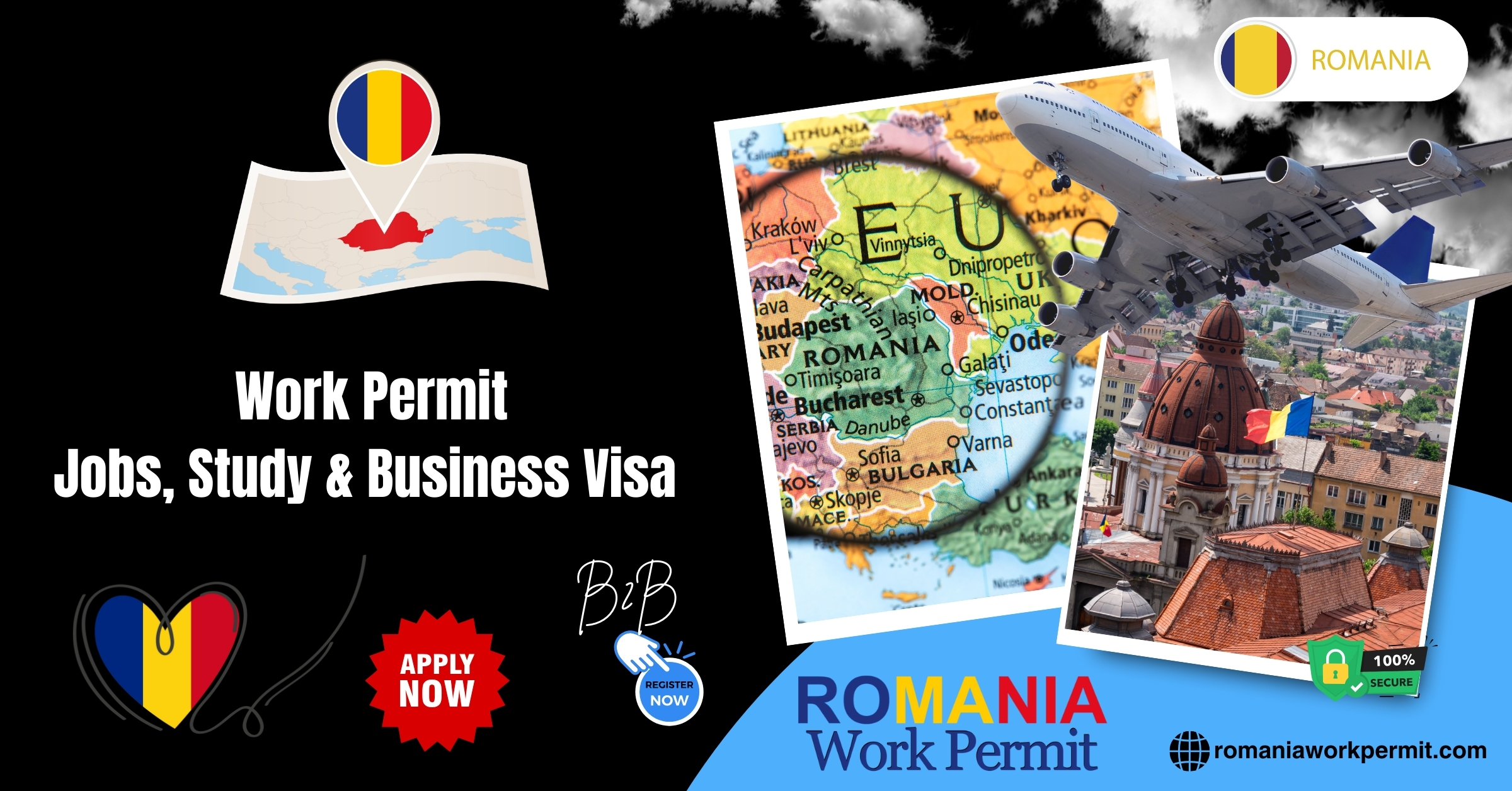In recent months, Romania has emerged as a key destination for workers from Bangladesh, offering a range of employment opportunities across various sectors. This move is driven by Romania's growing labor shortages, particularly in industries such as construction, manufacturing, IT, healthcare, and agriculture. As Romania seeks to bolster its economy and meet the demands of its expanding sectors, it is turning to international talent, including a large influx of workers from Bangladesh. This post will provide an in-depth look into the visa requirements and process for Bangladeshi nationals interested in securing work permits in Romania.
The Demand for Foreign Labour in Romania
Romania, a member of the European Union (EU), has faced increasing demand for skilled and unskilled labor as its economy continues to grow. With a population that is aging and a labor force shrinking due to low birth rates, Romania has struggled to fill positions in various sectors. Consequently, the Romanian government is increasingly focusing on attracting foreign workers to fill the gaps, with Bangladesh emerging as a key source of potential employees.
Opportunities for Bangladeshi Workers
For Bangladeshi nationals, Romania offers a wide range of opportunities, especially in industries where there is a shortage of skilled professionals. The manufacturing sector, which includes textiles and garment industries, is one of the major employers of foreign workers. Additionally, there is high demand for construction workers, engineers, IT professionals, and healthcare workers.
Many Bangladeshi migrants are particularly drawn to Romania due to the relatively lower cost of living and the growing potential for economic advancement. The Romanian job market offers competitive wages in comparison to other Eastern European countries, making it an attractive destination for Bangladeshi workers seeking better opportunities abroad.
Work Visa and Permit Requirements
To work legally in Romania, foreign nationals, including Bangladeshi citizens, must obtain a work permit and a long-stay visa. Below is a detailed breakdown of the requirements and procedures for Bangladeshi nationals to obtain these documents:
1. Work Permit Application
The first step in obtaining a work visa for Romania is securing a work permit. There are several categories of work permits based on the type of job, skill level, and duration of stay. The employer in Romania typically applies for the work permit on behalf of the foreign worker. The types of work permits include:
- Single Permit for Employment: This permit is for workers who have been offered a job by a Romanian employer.
- Highly Skilled Worker Permit: This is for professionals with higher qualifications or skills in areas like IT, engineering, and healthcare.
- Seasonal Worker Permit: For workers employed in seasonal sectors such as agriculture or tourism.
2. Visa Application
Once the work permit is approved, Bangladeshi workers must apply for a long-stay visa. The following steps must be completed for this process:
- Gather Required Documents: This includes a valid passport, proof of employment (a contract from the Romanian employer), evidence of accommodation, and proof of financial stability.
- Medical Examination: Applicants must undergo a medical examination to ensure they do not have any communicable diseases that could endanger public health.
- Proof of Qualifications: Depending on the nature of the job, workers may need to provide proof of their qualifications, such as educational certificates or professional training.
- Application Submission: The visa application, along with the supporting documents, must be submitted to the Romanian Embassy or Consulate in Bangladesh.
3. Processing and Approval
After submitting the visa application, the Romanian authorities will process the documents. This process typically takes several weeks, during which the applicant may be required to attend an interview or provide additional information.
4. Residence and Work Permit
Upon arrival in Romania, workers must register with the Romanian authorities and obtain a residence permit for work purposes. This process includes biometric data collection and further verification of employment.
Key Considerations for Bangladeshi Workers
While the opportunity to work in Romania is promising, there are some important factors that Bangladeshi workers should consider before making the move:
-
Language Barriers: Romanian is the official language, and while English is widely understood in major cities, proficiency in Romanian can be beneficial for communication and career advancement. Some employers may provide language training, but workers should be prepared to learn the language for day-to-day activities and workplace integration.
-
Workplace Rights: Workers should ensure they understand their rights under Romanian labour laws. This includes wage levels, working hours, holidays, and safety conditions. Romania’s labour laws are in line with EU standards, but workers should be aware of their legal protections.
-
Cultural Adjustment: Romania has a distinct cultural environment, and Bangladeshi workers may need time to adapt to the social and professional dynamics of the country. Embracing local customs and building relationships with colleagues can enhance the experience of working in Romania.
Conclusion
Romania's initiative to offer job opportunities to Bangladeshi nationals is part of a broader strategy to address the country’s labor shortages while providing new avenues for Bangladeshi workers seeking better employment abroad. Understanding the visa and work permit requirements is crucial for a smooth transition into the Romanian workforce. With the right preparation and understanding of the process, Bangladeshi workers can take advantage of the opportunities Romania has to offer and contribute to the country's economic growth.








